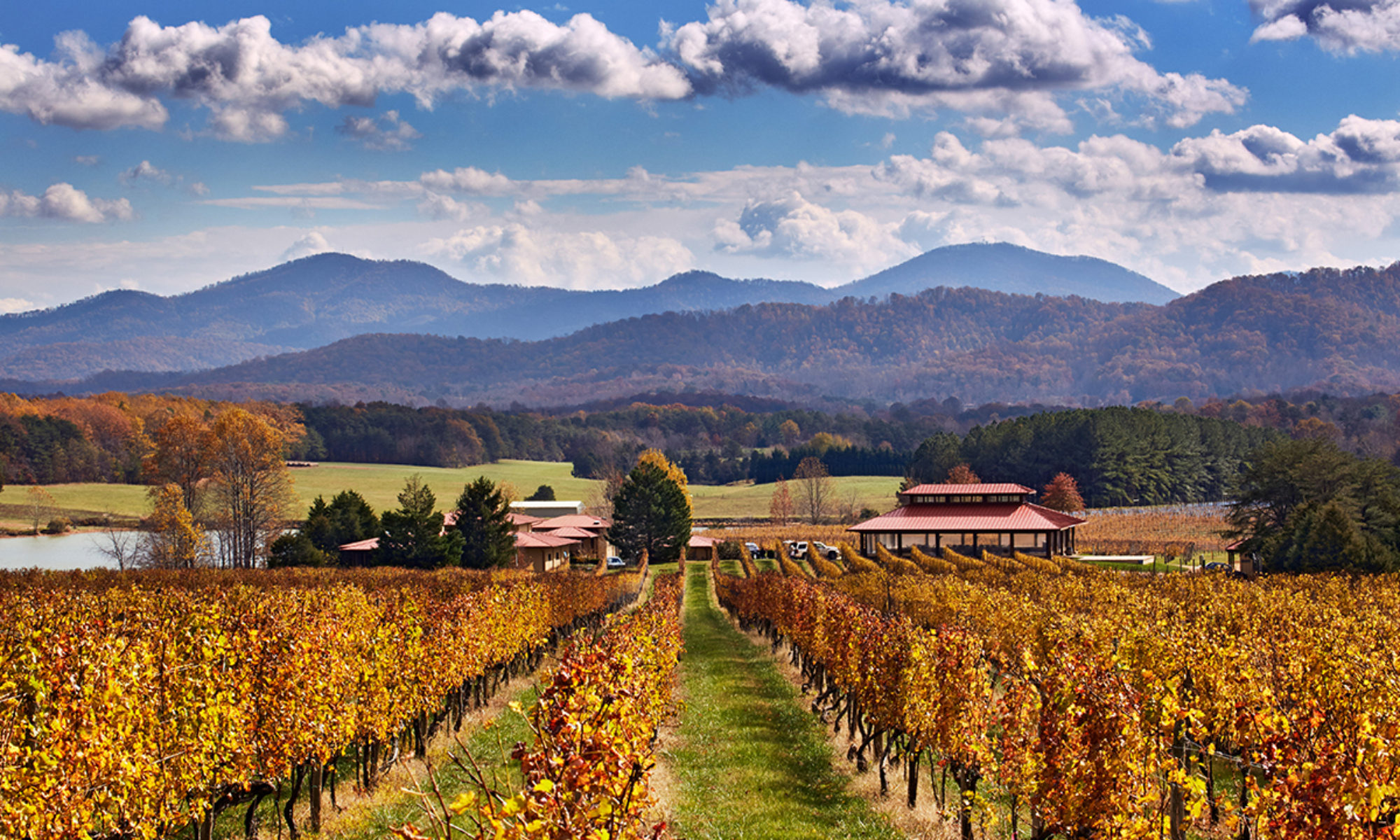Located in Ivy, West of Charlottesville between the towns of Centerville and Crozet, on Owensville Road. This beautiful property is located on part of the original estate of Meriwether Lewis, of Lewis & Clark fame. The winery, which opened in 2014 with vines planted in 2012, is currently for sale and open only to private events, or beer and wine bottle sales.
Wine. Tier III. Meriwether has produced good wines under the hand of winemaker Matthieu Finot, best known for his outstanding work at King Family Vineyards in Crozet, one of the top five wineries in Virginia. However, wines are not now under production during the property’s sale process, and many of the bottles advertised on the website have sold out of inventory. Still if you can get a bottle that is available, it should be good.
Setting. As noted, this is now mainly a private event center. The 31-acre property is easily accessible from Charlottesville and beautiful. The winery is on the first floor of a lovely wooden building also functioning as a B&B, with a flagstone terrace overlooking the vines. The Meriwether Brewery is in the basement and features a wood-paneled bar
Stories: Meriwether Lewis. One of America’s most remarkable explorers was Meriwether Lewis, co-leader of the 1803-1806 Corps of Discovery Expedition, better known as the Lewis and Clark Expedition. Following the Louisiana Purchase, signed by President Thomas Jefferson in 1802 and transferring the right to a vast uncharted territory from France to the young United States, the Lewis and Clark Expedition mapped a land which would more than double the size of the country. The expedition was the first to navigate up the Missouri River, cross the Continental Divide, and make contact with dozens of new Indian tribes. Lewis and Clark’s often-harrowing and difficult journey established the claim of the United States to most of what is now the lower 48 states. Meriwether Lewis, William Clark’s partner on this momentous voyage, was born in 1774 on Locust Hill Plantation, Albemarle County, where Meriwether Springs Winery and Brewery is now located. Meriwether was his mother’s maiden name. At age 21, Lewis joined the army of the new United States as an ensign, becoming a captain by 1800. William Clark was one of his commanding officers, marking the beginning of their famous partnership: Lewis was assigned to Clark’s unit after being court-martialed for drunkenly challenging a lieutenant to a duel. In 1801, Captain Lewis was named by newly elected President Thomas Jefferson to be his Secretary to the President, and in 1803 was asked by Jefferson to take on the job of discovering what it was that the country had just purchased. The expedition went on to cover 7,000 miles, and catalogue 178 new types of plants and 122 new animals. Its members were, among other things, the first Europeans to see prairie dogs and grizzly bears. Lewis also brought his black Newfoundland dog, Seaman, along. After the end of the journey, Meriwether Lewis was appointed Governor of Louisiana Territory by President Jefferson. He died of gunshot wounds in 1809 in Georgia and is buried there.
